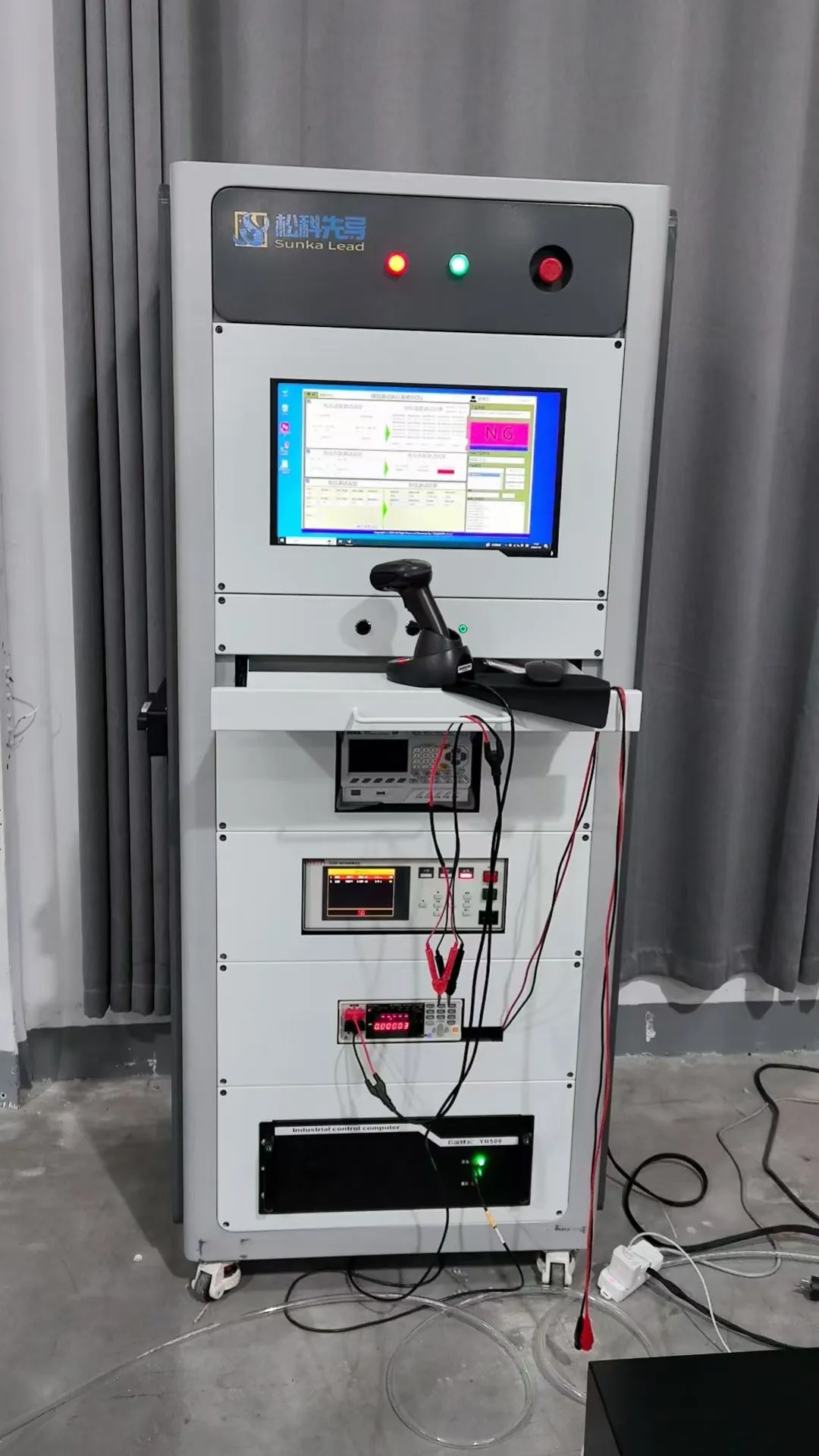In the world of battery production and testing, ensuring that each battery is fully functional and meets industry standards is crucial. One of the most effective ways to achieve this is through End-of-Line (EOL) testing. An EOL Testing machine for batteries plays a vital role in the quality control process by ensuring that the battery functions optimally before it reaches the consumer or is integrated into an end-use application.
In this article, we’ll explore what an EOL testing machine is, its key functions, and why it's important in the production of high-quality, reliable batteries.

What is an EOL Testing Machine for Batteries?
An End-of-Line (EOL) testing machine is an automated system used to perform final checks and tests on batteries at the end of the production line. These machines verify the functionality, performance, and safety of each battery before it is shipped to customers or used in devices like electric vehicles (EVs), energy storage systems, or consumer electronics.
EOL testing typically includes a range of tests, such as:
Voltage testing: Ensuring the battery has the correct voltage level.
Capacity testing: Verifying that the battery can hold and deliver the expected amount of energy.
Internal resistance testing: Measuring the resistance within the battery to assess its efficiency and health.
Safety testing: Ensuring the battery operates safely without risk of overcharging, overheating, or short-circuiting.
By automating these tests, EOL machines reduce human error, increase testing accuracy, and ensure that only fully functional and safe batteries reach the market.
Key Functions of an EOL Testing Machine for Batteries
Battery Voltage Testing:Voltage is one of the most critical indicators of battery performance. An EOL testing machine can quickly measure the voltage of each battery to ensure it falls within the acceptable range for its specific type. This ensures that the battery is capable of providing power as required by the application.
Capacity Testing:Capacity testing checks the amount of energy a battery can store and deliver over time. It simulates a real-world usage scenario to ensure the battery’s charge capacity is up to spec, preventing issues like premature battery drain.
Internal Resistance Measurement:Internal resistance is an important factor in the efficiency and longevity of a battery. High internal resistance can lead to inefficiencies such as heat generation and rapid energy loss. EOL testing machines measure this resistance and help identify any issues with the battery’s performance.
Safety Checks:EOL machines also test the safety features of the battery. This includes monitoring for overvoltage, undervoltage, temperature anomalies, and any signs of short-circuiting. These tests help ensure that the battery is safe to use and won’t cause harm during its operational life.
Automated Data Logging:The EOL testing machine logs all test results, providing manufacturers with a record of each battery's performance. This data can be used for quality assurance, traceability, and to identify trends or potential issues in the production process.
Why is EOL Testing Important for Battery Manufacturers?
Ensures Quality Control:EOL testing ensures that every battery leaving the production line meets the required quality standards. With thorough testing, manufacturers can detect any defective or underperforming batteries before they are shipped out, preventing costly returns and damaged reputations.
Improves Battery Safety:Safety is one of the most critical factors when it comes to battery technology. Malfunctioning batteries can pose risks such as overheating, leakage, or even explosions. EOL testing machines help prevent these issues by verifying that each battery meets the necessary safety criteria before it enters the market.
Reduces Production Costs:By identifying and discarding faulty batteries at the end of the production process, EOL testing helps reduce the likelihood of failures in the field. This minimizes warranty claims, product recalls, and customer complaints, ultimately saving manufacturers money.
Increases Customer Satisfaction:Customers expect reliable and long-lasting performance from the batteries they purchase. By ensuring that only fully tested, high-quality batteries reach the market, manufacturers can build trust with their customers and improve their brand reputation.
Compliance with Industry Standards:Many industries, such as electric vehicles and energy storage, have strict safety and performance regulations that batteries must meet. EOL testing machines help manufacturers comply with these regulations by ensuring that their batteries pass all necessary tests before they leave the production facility.
How SUNKA LEAD's EOL Testing Machines Can Improve Your Battery Production Process
At SUNKA LEAD, we specialize in providing advanced EOL testing machines that are designed to meet the high standards of modern battery production. Our machines are equipped with state-of-the-art technology to test battery voltage, capacity, internal resistance, and safety features with precision and efficiency. By integrating our EOL testing solutions into your production line, you can:
Ensure that only the highest-quality batteries reach your customers.
Reduce operational costs by identifying defects early in the production process.
Enhance product safety and customer satisfaction with rigorous testing standards.
Comply with industry regulations and maintain traceability of your production data.
Whether you're manufacturing batteries for electric vehicles, consumer electronics, or energy storage systems, SUNKA LEAD's EOL testing machines are designed to help you deliver safe, reliable, and high-performance products.
Contact SUNKA LEAD today to learn more about how our advanced testing solutions can optimize your battery production process and enhance the quality of your products.



